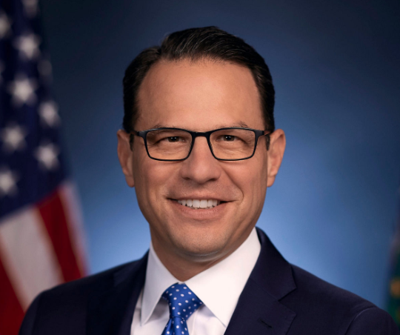
Shapiro
HARRISBURG – Even more is at stake in a fight over funding for a Pennsylvania program that feeds hungry citizens with food from local farms, the State is arguing.
“Surprise” moves from the federal government like its decision to withdraw millions of dollars from an agreement first reached under former President Joe Biden threaten the balance with state governments, Pennsylvania argued in Harrisburg federal court last week.
“Conditions governing federal funding must be stated unambiguously so that states can exercise their choice to receive federal money ‘knowingly, cognizant of the consequences of their participation,’” a response to the federal government’s motion to dismiss says.
“The federal government cannot surprise states with ‘post acceptance or retroactive conditions.’ Tolerating USDA’s termination here would fundamentally destabilize the cooperative relationship between states and the federal government.”
The U.S. Department of Agriculture filed to dismiss the case July 17, writing, “Money is finite.” Pennsylvania Gov. Josh Shapiro and state Agriculture secretary Russel Redding sued earlier this year after the Local Food Purchase Assistance 2025 Cooperative Agreement was terminated.
Federal USDA secretary Brooke Rollins in March canceled it and another program that used federal funds to buy food from local farmers. The LFPA bought food for food banks, and the other program bought food for schools.
About $660 million for school food was cut nationwide. Pennsylvania had received $30 million in two prior rounds of funding for food banks, but the USDA utilized a stipulation in the LFPA that allowed it to cancel the Biden-era contract within 60 days. That halted $13 million in federal funds.
"(A)ll spending decisions - whether by single-family households or by federal agencies with nationwide mandates - are discretionary assessments of opportunity costs: a dollar spent here is a dollar unavailable there, making difficult tradeoffs often necessary," the USDA's motion to dismiss says.
Shapiro and Redding called the move unlawful and worried about its impact on farmers. Their lawsuit complains that the termination notice did not fully explain why.
The USDA said LFPA no longer effectuated its priorities, but Pennsylvania argues 100% of the money is used to feed hungry families while helping farmers with their bottom lines. Two prior rounds of funding had provided $30 million in food to more than six million households.
The case will come down to whether Pennsylvania can challenge budget issues in the federal government. The USDA says it can't, though the Commonwealth crafted its complaint to make claims under the Administrative Procedure Act.
Pennsylvania said the termination as arbitrary and capricious, in violation of the APA. If any agency action reflects a changed position, that agency must acknowledge and display awareness of the change, they say.
Redding had written the USDA to ask why LFPA was no longer a priority but received no response. Further, Pennsylvania makes a due process claim, arguing a hearing on the termination was required.
The USDA says these legal claims mask the true intent of the lawsuit: Second-guessing the federal government's financial decisions.
"The USDA's decision as to how best to allocate the funds that would have been used for Pennsylvania's contemplated cooperative agreement is one committed to its discretion 'by law,' thus excepting it from judicial review," the USDA said.
Earlier this year the U.S. Supreme Court held the Court of Federal Claims, which handles contract issues with the federal government, was the proper forum for a case involving the termination of federal grants. That's where Pennsylvania should have filed, the USDA says.
"The Supreme Court's holding was no innovation of law," the motion to dismiss says.
"The D.C. Circuit - which has a uniquely robust body of jurisprudence over contractual claims against the United States - has long recognized that district courts have no jurisdiction over contractual claims against the United States, even where creative plaintiffs disguise those claims in constitutional, statutory or regulatory garb."


